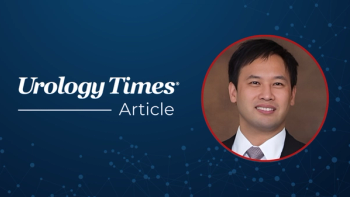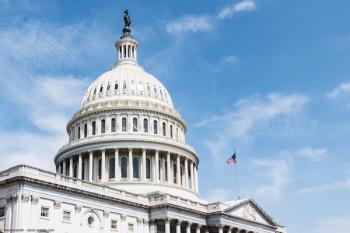
AACU, UROPAC continue to gain momentum on the Hill
It’s been a busy couple of months for health policy on Capitol Hill, as the AACU and UROPAC continue to make headway in their efforts to strengthen urology’s voice in Washington.
It’s been a busy couple of months for health policy on Capitol Hill, as the AACU and UROPAC continue to make headway in their efforts to strengthen urology’s voice in Washington. On multiple occasions, AACU members have met with lawmakers to discuss several priorities for urologists, including administrative burden, USPSTF reform, specialty physician shortages, and access to affordable treatments.
According to Miller Ashman, MD, a practicing urologist from upstate New York who attended multiple meetings on the Hill this past June, “I helped legislators understand how rules enacted by government bureaucracies often become a deterrent to effective, time-appropriate patient care. I reviewed examples of how a poor rating assigned to PSA testing has led to a higher incidence of metastatic disease at time of initial diagnosis. I stressed the need for GME funding to include specialty medicine in addition to primary care.
“I was surprised at how willing the congressmen I met with were willing to listen,” Dr. Ashman said. “My discussion with one representative produced immediate results, as I received a call from his office within 2 hours of our meeting.”
USPSTF reform remains high priority
On May 8, the U.S. Preventive Services Task Force (USPSTF) released its final recommendation statement on screening for prostate cancer, solidifying the revised “C” grade for men ages 55 to 69 years. In response,
But while the AACU and the urologic community
As such, AACU members have continued to make USPSTF reform a priority in their discussions with legislators on the Hill and have urged House members to co-sponsor and support the passage of
For example, during a recent discussion with Rep. Buddy Carter (R-GA-1), AACU President-Elect Mark Edney, MD, MBA, explained the negative effects that the 2012 USPSTF recommended “D” rating for prostate cancer screening has had on prostate cancer treatment, including a troubling uptick in metastatic cases over the past several years. Rep. Carter was troubled by the problems with USPSTF and indicated his office would take a much closer look at H.R. 539.
Administrative burden, physician shortage highlighted
Other top priorities for the AACU include bringing down ever-increasing health care costs and reducing the administrative burden associated with not only MACRA implementation but also utilization management protocols like step therapy and other onerous requirements that do not reflect the reality of day-to-day practice.
During his time on the Hill last week, which included meetings with Sen. Claire McCaskill (D-MO), Rep. Brad Wenstrup, DPM (R-OH-2), and staff from the offices of Rep. Ron Kind (D-WI-3) and Rep. David Schweikert (R-AZ-6), AACU President Patrick McKenna, MD, highlighted the impact of administrative burden on practicing urologists, particularly with respect to electronic health records (EHRs), by pointing out its link to provider burnout and specialty physician shortages.
Dr. McKenna referenced the recently released
Dr. McKenna also met with staff from Ways & Means Chairman Kevin Brady’s office to discuss
UROPAC-supported candidates make headway on key issues
UROPAC-supported candidates continue to be at the forefront of key health policy issues affecting the urology community in a strong sign that the AACU’s efforts to provide the urology perspective and strengthen our voice on the Hill are paying off.
For example, due in large part to the efforts of Rep. Anna Eshoo (D-CA-18), Rep. Marsha Blackburn (R-TN-7), and Energy & Commerce Health Subcommittee Chair Michael Burgess, MD (R-TX-26), the Energy & Commerce Committee recently passed a bill that includes key protections for medical professionals who volunteer their services during national disasters. During its markup, the Health Subcommittee added provisions from Rep. Blackburn’s Good Samaritan Health Professionals Act of 2017 (
AACU members have met with all three legislators over the past 6 months, including in a one-on-one, in-district meeting between Bob Dowling, MD of Fort Worth, TX and Rep. Burgess. The AACU has been a key supporter of H.R. 1876 on the Hill and applauds the House for taking one step closer to passing these important protections.
Similarly, Sen. Bill Cassidy, MD (R-LA), Rep. Buddy Carter, and Rep. Brad Wenstrup continue to be strong leaders in the efforts to address drug costs and access to treatment. Sen. Cassidy and Rep. Carter both introduced legislation to prohibit “gag clauses” used by pharmacy benefit managers to bar pharmacists from informing patients when the cost of a drug would be less if purchased without insurance (
The AACU applauds these and the many other UROPAC-supported legislators for their strong leadership and commitment to improving urologic care. UROPAC looks forward to a continued relationship with these offices as we continue to make sure urology’s voice is heard.
Newsletter
Stay current with the latest urology news and practice-changing insights — sign up now for the essential updates every urologist needs.






